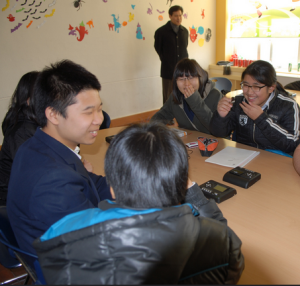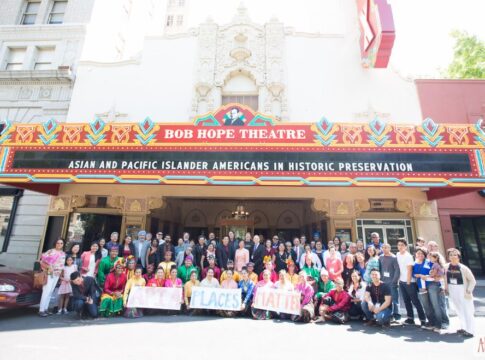Asian American English teachers introduce themselves as Americans back in Korea. However, back in the United States, many of them are referred to by others as simply Asian, sans the American.
One of my American friends from Cornerstone Church introduced a Korean American adoptee as Korean, but we couldn’t communicate in Korean since he was raised in the United States, and therefore did not speak the language.
I wondered how Asian Americans think about their identities. Do they feel discriminated when people call them Asian rather than American? Or do they really consider themselves Asian? After asking these questions to several Asian American friends, I realized the necessity of a cultural institution for second and third generation immigrants who want to find their roots.
Alvin Wong, a Chinese American from California who works as a Hosting Systems Administrator, never referred to himself as American in the U.S. More often than not, he identifies himself as Chinese. Although his nationality is American, he still speaks Cantonese fluently enough to mingle with the Chinese community and is familiar with Chinese culture. It does not bother him that people call him Chinese. However, Jennifer Lee, an English tutor at a Korean high school, was adopted from Korea three months after she was born and does not know the Korean culture and language. She wanted to work in Korea to learn the Korean culture.
LATEST STORIES
Korean adoptees who took Introduction to Asian American Studies, the Asian American studies course at Iowa State, admitted going through an identity crises. The nationality on their passport says American, yet they have Asian origins.
There are even slang words for Asian Americans, like twinky and banana. Twinky is a snack which has white cream inside and yellow bread outside. Because Asian Americans usually have an Asian appearance but westernized behavior, they are sometimes called twinkies or bananas. These terms are used for jokes in general, but can be racially offensive, depending on the context of the situation.
The problem is that there are several Asian Americans who want to be a part of the Asian community by finding their own roots, even though they are not familiar with the culture. It would be easy for someone like Alvin Wong, who is already familiar with Asian culture, but they might find difficulty in adapting if they are not.
There are quite a lot of adoptees in the U.S. like Jennifer Lee. According to the U.S. Department of State, there were 249,694 adoptions from Asian countries from 1999 to 2013. Many of them only speak English because their parents are Americans. Not only adoptees, but some Asian Americans whose parents are Asians don’t know their parents’ primary language because only English is spoken in their household. These reasons make it difficult to adapt to Asian culture when they are trying to find their roots.
However, when people in Asia do not treat Asian Americans as part of their country because of the cultural and language barrier, it’s difficult for them to be part of the Asian community as well.
Since knowing your culture and language are the most important factors when it comes to your ethnicity, Asian Americans need to know their cultural backgrounds in order to become fully accepted into the Asian community.
It does not matter if Asian Americans want to be treated as Americans. Caucasian Americans are also from different continents, so there is no reason for any American to be treated differently.
About the Author: Seungwon Kim is an international student from South Korea.









RE: Asian Americans are real Americans: Discussion will continue for some time to come, however it is a healthy topic to reexamine periodically…